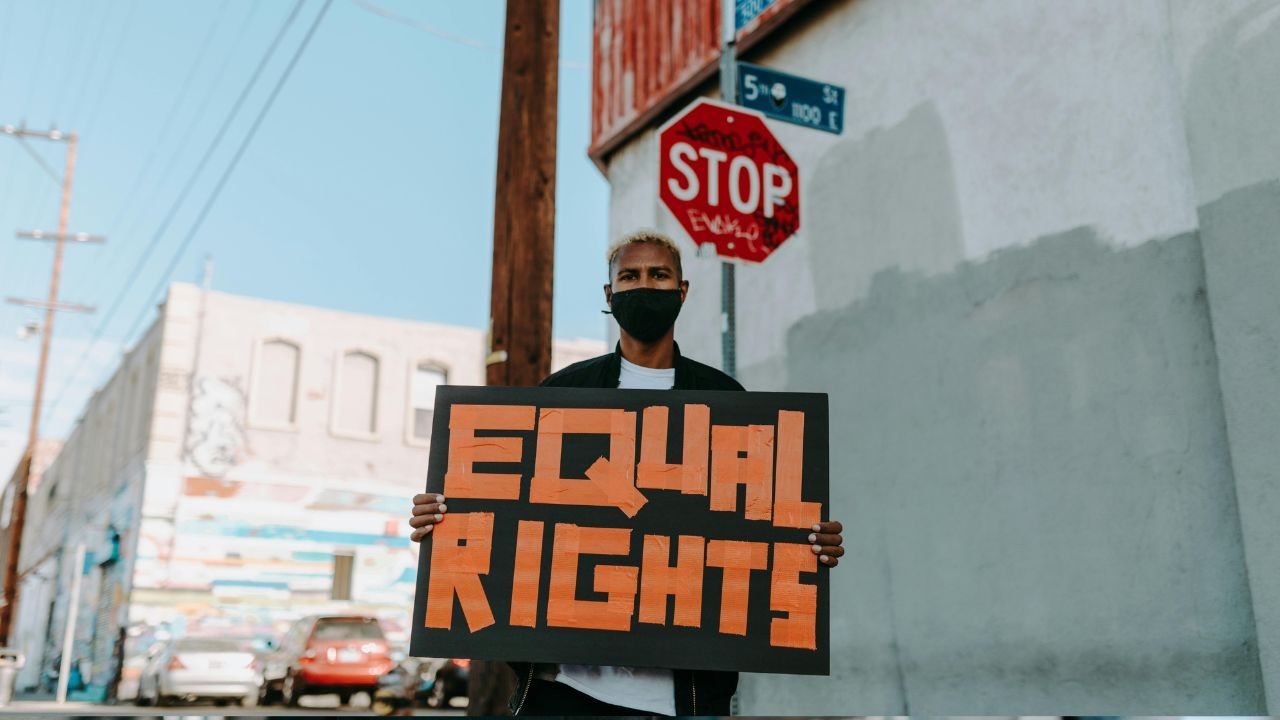
Empowering Change: The Power of Intersectional Feminism in Today's World
Jun 11, 2025Breaking Barriers: Why Intersectionality is the Future of Feminism
Feminism is often painted with a broad brush, but the reality is far more complex. One of the biggest misconceptions about feminism is that it’s a movement solely for and by privileged white women—a movement that doesn’t take into account the layered experiences of women from diverse backgrounds. That’s where intersectionality comes in, and it’s a game-changer.
Intersectionality is the key to truly understanding feminism. Coined by Kimberlé Crenshaw in 1989, intersectionality explains how different aspects of a person’s identity—such as race, class, gender, disability, and sexual orientation—overlap to create unique experiences of discrimination and privilege.
So, why does this matter? Because feminism without intersectionality isn’t feminism at all. It’s just another form of exclusion.
Feminism: More Than a One-Size-Fits-All Movement
A few weeks ago, I tackled some of the biggest myths surrounding feminism in a podcast episode. The one that always seems to come up? That feminists hate men. Spoiler alert: That’s not even remotely true. In fact, feminism benefits men, too! If you missed that episode, go back and give it a listen—it might just change the way you see feminism forever.
One major topic that came up in that discussion was intersectionality, and that’s exactly what we’re unpacking today. Because here’s the thing: not all women experience oppression the same way. And if feminism doesn’t acknowledge that, then it’s leaving a huge portion of women behind.
What is Intersectionality?
Intersectionality is a big, important word, but its meaning is pretty simple. Coined by Kimberlé Crenshaw in 1989, the term describes how different aspects of a person’s identity—race, class, disability, gender, nationality, and more—overlap and create unique experiences of discrimination and privilege.
For example, a white woman and a Black woman may both face gender discrimination, but the Black woman also experiences racial discrimination, which creates a compounded experience of oppression. That’s why feminism can’t just be about gender—it has to take into account all the different systems of oppression at play.
How Intersectionality Affects Feminism
Traditional feminism—especially in its early waves—focused primarily on issues affecting white, middle-class, cisgender women. That means many marginalized groups were left out of the conversation. Intersectional feminism, on the other hand, is about fighting for ALL women, regardless of race, class, sexuality, ability, or nationality.
Here are five key areas where intersectionality comes into play:
1. Race and Feminism
Women of color face both racial and gender discrimination, leading to:
- Pay gaps: Black and Latina women earn significantly less than white women and men.
- Medical bias: Black women experience higher maternal mortality rates due to systemic racism in healthcare.
- Workplace inequality: Lack of representation in leadership roles.
2. Class and Feminism
Women from lower-income backgrounds often face economic barriers that wealthier women don’t, such as:
- Lack of paid maternity leave or affordable childcare (which, let’s be real, is practically double rent at this point!).
- Inability to leave abusive relationships due to financial dependence.
- Job instability and lower wages, disproportionately affecting women in lower-income brackets.
3. LGBTQ+ Identities and Feminism
Traditional feminism often left out LGBTQ+ women, particularly transgender women, who experience both gender-based oppression and transphobia. Intersectional feminism ensures that gender equality includes all identities.
4. Disability and Feminism
Women with disabilities face:
- Higher unemployment rates
- Limited access to healthcare and reproductive rights
- Higher rates of abuse
5. Global Feminism
In many parts of the world, women face unique struggles such as child marriage, lack of education, unsafe working conditions, and gender-based violence. Intersectional feminism acknowledges these issues and fights for solutions that uplift all women, not just those in privileged Western societies.
Why Intersectionality Matters in Business and Wealth Building
We see the impact of intersectionality in entrepreneurship, investing, and leadership as well. Women—especially women of color—often struggle to access funding, leadership roles, and equal pay. Intersectional feminism:
- Advocates for equal access to capital and financial education.
- Pushes for more women in leadership to influence policies.
- Creates inclusive spaces where all women can succeed.
How YOU Can Support Intersectional Feminism
So, how do we make sure we’re practicing intersectional feminism instead of just talking about it? Here are some actionable steps:
✅ Support diverse, women-owned businesses—When you shop, eat, or hire, look for businesses owned by women, especially women from marginalized backgrounds.
✅ Advocate for inclusive workplace policies—Push for pay equity, leadership opportunities, and parental leave (yes, for both men and women!).
✅ Educate yourself and uplift marginalized voices—Listen to, read, and amplify the perspectives of women from different backgrounds.
✅ Use your platform to create space—If you have a podcast, blog, or business, highlight diverse voices and experiences.
Final Takeaway: Feminism for ALL Women
Intersectionality isn’t a buzzword—it’s the future of feminism. It’s about recognizing that oppression isn’t a one-size-fits-all experience, and fighting for a world where ALL women—regardless of race, class, disability, sexuality, or nationality—have equal opportunities.
Ready to Take Action?
🎧 Listen to the Full Episode → LISTEN HERE
🚀 Follow on Instagram → CLICK HERE
📩 Subscribe to My Newsletter for more tips on business & wealth-building → SIGN UP
Start by sharing this post and sparking conversations about intersectionality in your own circles. The more we talk about it, the more we can create real, lasting change.
Let’s keep pushing forward, together. 💪🔥
What are your thoughts on intersectional feminism? Drop a comment below or DM me—I’d love to hear your perspective!
If you enjoyed this episode, subscribe to The Audacious Founder podcast and leave a review! Your support helps us continue to bring powerful conversations to help you build audacious wealth and success.
#IntersectionalFeminism #GenderEquality #FeministVoices #WomenEmpowerment #DiversityAndInclusion #SocialJustice #BreakingBarriers #EquityForAll #FeminismMatters #InclusiveFuture #StandForChange #EmpowerWomen
Stay updated!
About our events, updates and blogs.
We hate SPAM. We will never sell your information, for any reason.
